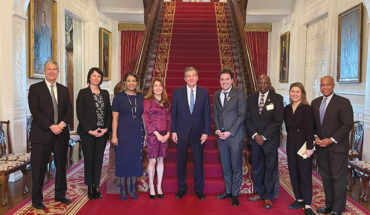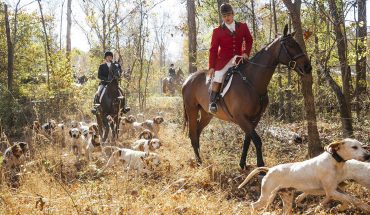by Andrew Kenney
photographs by Geoff Wood
Raleigh skateboard pro Connor Champion, like most skaters, is an urban cartographer. He knows the lines that connect downtown’s slopes and edges maybe as well as anyone.
He’ll show me, he says. As we cruise toward Capital Boulevard, the lanky, talkative athlete points out one downtown skate spot and another from the passenger seat.
Champion’s had years to memorize these city blocks – it’s been a long ride to 2013, the year that everyone hopes will prove a seminal season for this 24-year-old breakout skateboard star and Broughton High School dropout.
First, there’s the original site of Exploris Middle School, his one-time home base near Moore Square. Then, at the edge of downtown near Peace Street, he calls out a distinctive wood-walled building. His friend’s dad designed that place, he says, and used to let them slide their boards down its concrete wall. A few blocks away, not far from the governor’s mansion, there’s “Champion Gap,” a stunt spot where someone’s carved his name.
This October ride through Raleigh is kind of a farewell tour before Champion sets out on an adventure that would have seemed like an idle daydream when he was failing English at Broughton seven years ago.
At the end of the week, Champion, who has eight corporate sponsors, has racked up competition wins, and regularly skates in professionally produced videos, is heading to Europe for a month to get paid to skate. On stage. Behind Lil Wayne, Champion’s idol and one of the most popular rappers in the world. He’s already done the U.S. leg of the tour.
This is not a guarantee of “success.” No brush with stardom is. But it’s a fine example of how skateboarding, once the obsessive hobby of a crew of diehards, has become an industry, with thousands of kids on boards, and one-time punks for titans.
“By the time I quit going to school, skating, that’s all I could think of,” says Champion as we drive toward a city skate park north of town. “I’m going to fail English, they’re going to hold me back, or I’m going to go to summer school – and I’m like, no, neither of those things is happening.”
So he got a high school equivalency credential instead, and he skated, every day.
 Early start
Early start
Champion started skating seriously 13 years ago in Zebulon, 24 miles east of the downtown Raleigh streets where he made his name.
His family had recently moved from Georgia to a half-built development. Champion’s house was at the edge of the neighborhood, or what was finished of it, on a road that rolled right into an empty field. “It was seven, eight hundred feet of just street after my house,” he says.
That empty pavement was like a sandbox for the young skater. Freed from the threat of traffic, Champion and a friend nailed together wooden ramps and obstacles and hauled them on to the road to create a skate park of their own.
“Once I found out, like, that it was completely up to me, you know what I’m saying, I didn’t have to rely on anybody else, there wasn’t a whole team to it – I was good.”
Like most skaters, Champion wasn’t content to skate the same terrain every day. As a new student in sixth grade at Exploris Middle School, he used the downtown campus to launch into an urban jumble of edges to grind, stairs to jump, and gaps to clear.
Skating’s then-resurgent popularity ensured Champion quickly found a crew, and, to his young bewilderment, the cachet of “cool.” A lot of skaters can tell you about the way the niche sport expanded and receded several times since mid-century, then began an explosion in 1995 that drove it from outsider hobby to ubiquity.
Anyway, Champion and his friends didn’t mind the attention. They just kept skating. In a way, he says, skaters re-colonized downtown long before the farm-to-table restaurants and craft-brew bars. They weren’t welcomed, exactly, by the merchants or police, but they were there.
If you were, too, you would have seen teenage Champion with his entourage and a Hi8 camcorder with a fisheye lens, doing fancy tricks and “thinking I was crushing the film game.”
Soon enough, he had a tape, and he knew what to do with it. Champion had been haunting Endless Grind, downtown Raleigh’s venerable little skate shop. The store was the daily meeting place for Raleigh’s established skaters, and his tape gave him an “in.” Soon the older skaters were remembering his name, asking him to appear in their own videos, and treating him like one of them, not a kid at the store.
“In my head, at the time,” he says, “I was finally achieving a piece of something that I wanted.”
 Seasoned pro
Seasoned pro
Champion and I pull into Marsh Creek Skate Park about 1 p.m., both freshly caffeinated, he ready to skate and I ready to watch. Just off New Hope Road in Northeast Raleigh and open for free use, this is one of a crop of new municipal parks that have changed skating in Raleigh.
He pontificates on the topic as he pulls one denim-clad leg over the other in a warm-up stretch. (He’s recently gotten into yoga, at his mom’s suggestion.) These parks, by his theory, have made skating more accessible to more people. Thousands of them, all over our capital city. So have media coverage and the move by big sporting-goods companies into the shoe and gear markets. But has it all spread the scene thin, he wonders?
Champion doesn’t even know half the kids skating anymore, he grumbles. They get their tricks off YouTube instead of waiting every month for a new crop of videos from Endless Grind, as he once did. He seems to enjoy this new role, clucking at the youngsters.
Champion takes a few minutes to get into gear. The park’s setup isn’t ideal for his style, he says, and he’s feeling a bit rusty – but it’s not long before he’s launching down a set of stairs with abandon.
Casual as anything, he rumbles with the board across the concrete, launches up two feet, lands a metal railing between the boards’ wheels with a clang, and slides easily down a set of a half-dozen steps, one arm up for balance.
“Do it again,” I urge.
Like him, I want to see “the perfect line.”
Then we head to the pool, a menacingly deep concrete bowl behind a short chain-link fence. Champion admits that he’s scared of this thing, but he launches in, letting the curved walls swing him up and over the rim and back in again. He’s so tall that it seems unlikely a little four-wheeled board can keep him attached to near-vertical surfaces.
I notice a skater, about 15, watching from behind the fence.
“You ever heard of this guy? Connor Champion?” I ask, as Champion jumps out of the pool.
“Connor Champion, yeah, Connor,” the kid says. “Yeah, I’ve heard about you for like a while. I go to Endless Grind like every Saturday.”
The kid – his name is Amere Richardson – sounds like Champion when he talks about the sport: the singular obsession of skating, the beauty of its balance, all that. The kid wants to go pro, and I step back to listen as Champion gives him what advice he can.
Eyes on the prize
The truth, though, is that Champion can’t tell him how to do it, because he’s not sure himself. Like any sport, skating doesn’t offer great odds of financial success for would-be pros, and it’s not nearly as established or lucrative a business as many team sports can be.
Surely, though, it’s come a long way from homemade ramps in little towns, and Champion’s all-in at the moment. When he dropped out of Broughton, he knows it broke his parents’ heart, but his mother has since come around. She has seen him working at it every day, skating and filming, trying to make a job of this stuff, and she’s come to believe in it, he says.
Now Champion’s racking up all the chips he can find. The Lil Wayne tour is the latest. When Wayne asked him to join the team of skateboarders performing behind him during his stadium tour of the United States this summer, Champion (who has a Lil Wayne-inspired tattoo on his palm), immediately flew from a skate video shoot in Atlanta to join the tour.
Besides hanging out for weeks with his favorite musician, Champion found his profile lifted, and a good paycheck.
He also appreciates the smaller stuff. Videos of Champion skating, for example, have been viewed tens of thousands of times online. They’re pretty amazing, the camera zooming along behind Champion as his long legs push him up to speed, the skater easily grinding along benches and walls and sometimes even leaving the board, letting it rotate in the air, and landing on it again. In one, he appears as a spokesman for a skateboard parts company. It’s not glamorous, but I know the feeling it likely brought him: The rush of being paid to do what you love.
As I drop Champion off after our interview, I ask him what he’ll do if skating doesn’t work.
“The backup plan is, it’s skating. I’m relying on skating, as an all-encompassing thing … All I know is skating,” he says. He tells me he’s planning a move to New York City, to throw himself into a bigger scene. I ask if he’s getting too big for this town – big fish, small pond, you know?
“Dude, this is my pond,” he says. “I know everybody. I’ve grown up with the skate scene, straight up.”
Then he grabs his board from my trunk, and he’s off to skate again.





